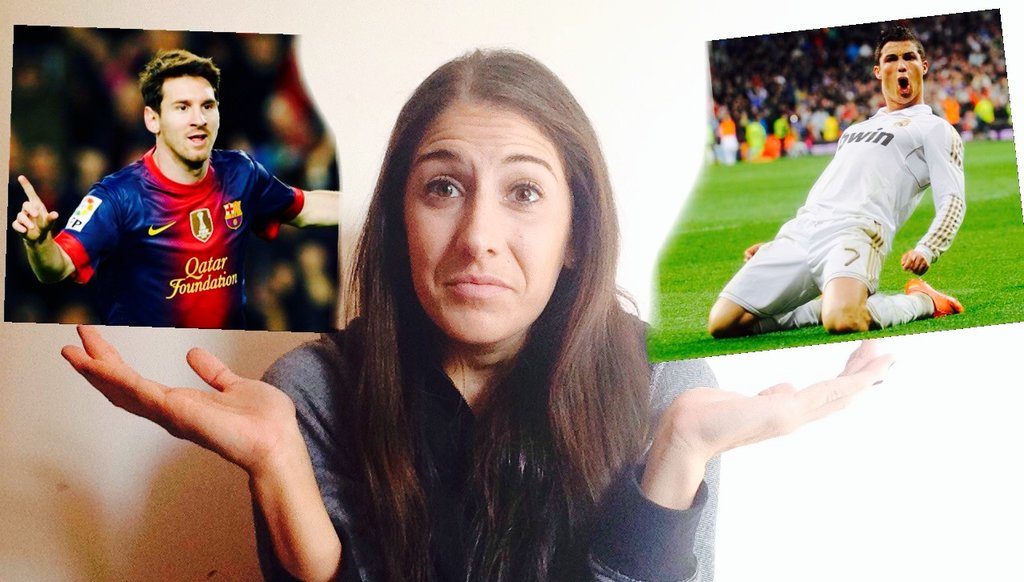Image: The best player in the world? Lionel Messi, left? Or Cristiano Ronaldo? The author, center, says. ...
After Cristiano Ronaldo’s third goal against Sweden in the World Cup qualifying playoffs in Stockholm, the camera panned the crowd. The Swedish fans had a look of despair. It wasn’t even anger or frustration, simply pure despair. It was what I imagine the ancient Greeks looked like in myths when tragedy struck at the hands of the gods — pained, but resigned to the fact that the destruction was not the work of an Earthly power.
It is the same look that I have often seen on the faces of defenders in Spain’s La Liga, as Barcelona’s Lionel Messi glides past a perfectly shaped defensive line in one slaloming dribble. There is nothing to be done but accept the circumstances in awe.
There are players that seem to defy the human realm of ability. Even on the world’s biggest stage they can dominate with seeming ease and alone change the course of a game. So who — between these two gods among men — is the best in the world: Ronaldo or Messi?
As a psychology major and an elite athlete fascinated by the concept of mastery in sports and in life in general, I often contemplate greatness. Similar to intelligence, I surmise that there are different genres of athletic greatness. An athlete can be physically superior, with incredible speed, agility, balance, explosiveness, strength; technically great, with the ability to pick up skills quickly and make complex movements habitual; visually and spatially great, with an uncanny sense of where to be and when, and knowledge of where others are; and last, an athlete can have a tremendous capacity for the drive and discipline to train not only substantially, but in the best way possible
My experience has led me to believe that every athlete falls somewhere on a spectrum of ability when it comes to those qualities. With that innate ability as a starting point, every area can be focused on and improved to a certain extent. Whereas I may not be blessed with the same speed or agility as some of the top female soccer players in the world, I have gifts in the other areas. I have a good sense of how to train and can spend hours on a task without getting bored or distracted. This is as much of a talent as a good time in the 40-yard sprint.
And so my opinion on the Ronaldo versus Messi debate is formed. …
Ronaldo makes more sense to me as a player. He does moves that we all learn as youngsters, albeit combining about 47 of at a time. He makes runs that we have seen drawn up on chalkboards. He finishes using the techniques that coaches have players practice in drills. He does all of that better than anyone else. Ronaldo has proved himself effective in multiple environments, with different teammates and under different managers. Messi has yet to do this to the same extent.
Messi’s movements are not trained in the weight room or with an agility ladder. His dribbling is not composed of moves that can be taught by a coach. Even his finishing is often not something he could have trained with repetition on the practice field. He is, by all definitions of the word, an instinctual athlete (not to say, of course, that he doesn’t work exceptionally hard in training).
I cannot say that Ronaldo or Messi is better than the other. They both illustrate the inevitable combination of an inherent gift with the characteristics and circumstances that enable them to excel. There is no single ingredient that creates greatness, just as there is no single definition of greatness.
Yael Averbuch is currently home in Montclair, N.J., during the off-season in between U.S. national team training camps. Follow her training and travel on Twitter, @yael_averbuch, or by subscribing to her YouTube channel, YouTube.com/user/yfutbol.
SOURCE:

